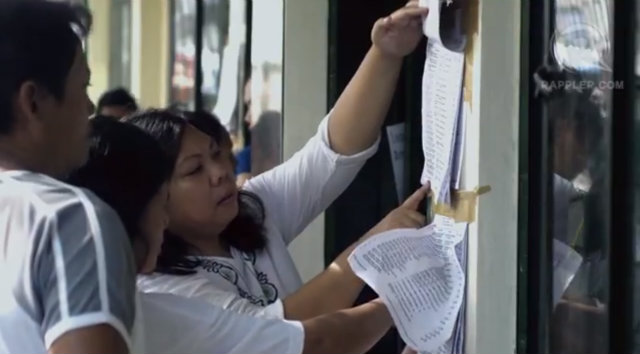SUMMARY
This is AI generated summarization, which may have errors. For context, always refer to the full article.

MANILA, Philippines – Over 800,000 candidates vie for positions in the Philippines’ most basic political unit – the barangay. Here, friends, family, and neighbors are pitted against each other.
Bea Cupin reports.
Emotional and deeply personal — it’s how many officials describe the barangay elections. Five months after the 2013 midterm polls, Filipinos once again head out to vote. This time, for barangay captains and members of the barangay council.
RICOJUDGE ECHIVERRI , LIGA NG MGA BARANGAY PRESIDENT: Compared to national and local elections which is wider in scope, the barangay is smaller and it’s really personal because the people involved are magkakapit-bahay and relatives at the same time.
Violence becomes part of the dynamics in an election that pits friends and family against each other.
Since the campaign period started, at least 64 election-related incidents have been tagged by police.
At least 22 people died from election-related violence, a figure higher than the 2010 barangay elections. Comelec says they expect more electoral protests to come, especially in barangays where rivalries run deep.
But the problems aren’t just about political conflict – it’s the way the country runs elections.
70-year-old Lucila Savilla is having a tough time making it up a flight of stairs at the Morning Breeze Elementary School in Caloocan City where over 10,000 voters are registered. There is no special polling area for persons with disabilities or senior citizens in the school.
LUCILA SAVILLA, CALOOCAN VOTER: Nahirapan talag ako, ang sakit kasi ng paa ko, hindi na ako naka-inom ng gamot, nagboto na ako. (It’s hard because my leg hurts. I wasn’t able to drink my medicine because I wanted to vote early.)
Forbes Park is one of the more affluent barangays in the country. It’s easy for PWDs and senior citizens to vote here. An air-conditioned pavillion awaits the barangay’s 4,000 or so voters, over 60% percent of whom are among household staff in Forbes. Board of election tellers and canvassers expect a swift canvassing of votes – the barangay captain candidate runs unopposed and only 11 are vying for 7 barangay council slots.
The commission on elections has to deal with a 400 million peso shortage in funds, for the deputization of the Philippine National Police, the Armed Forces, and teachers who serve as Board of Election Tellers. But political rivalry is the last thing on Lucila’s mind. She just wants a barangay captain the community can count on.
LUCILA SAVILLA, CALOOCAN VOTER: Para makatulong sa gusto kong kapitan, sa gusto nating mayor… kung sino ang gusto natin na nakakatulong sa atin. Eh di tutulungan rin natin, diba? ([I vote] because I want to help the barangay captain, the mayor who I want. They are able to help us. So we should help them too. )
Barangay politics is extremely up close and personal. Still, the core issue is the candidate’s ability to serve. By day’s end, the Philippine’s basic unit of politics will have new leaders at their helms. Bea Cupin, Rappler, Manila. – Rappler.com
Add a comment
How does this make you feel?
There are no comments yet. Add your comment to start the conversation.